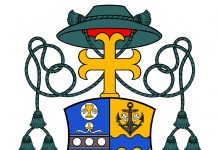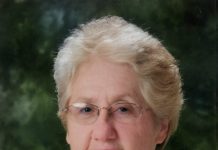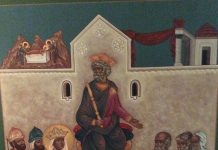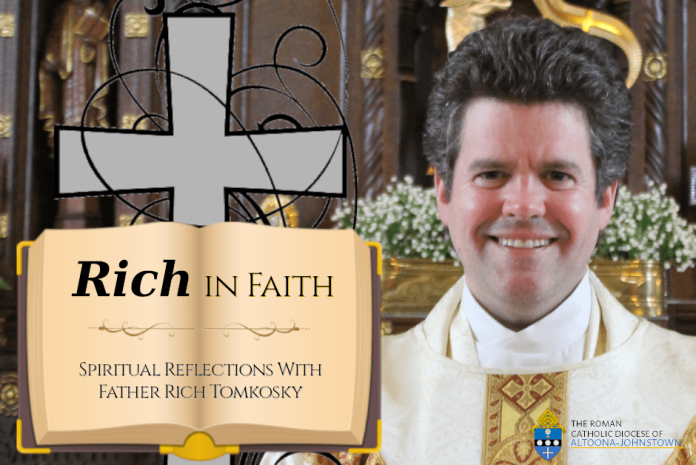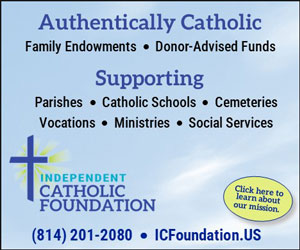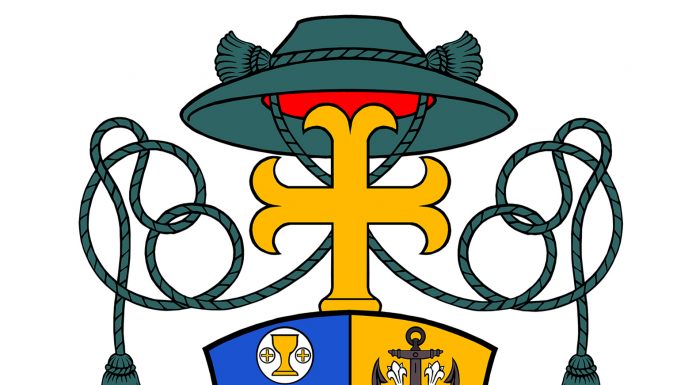By Father Rich Tomkosky
As Catholics, we base our faith on both the Bible and Sacred Tradition. Saint Jerome, the great biblical scholar of the early Church, and cranky temperament, who gives us all hope to become saints, once said, “Ignorance of the Sacred Scriptures is ignorance of Christ.” What did he mean by that?
In Hebrews we hear, “Brothers and Sisters: Indeed, the Word of God is living and effective, sharper than any two-edged sword, penetrating even between soul and spirit, joints and marrow, and able to discern reflections and thoughts of the heart. No creature is concealed from Him, but everything is naked and exposed to the eyes of Him to whom we must render an account.” The Bible is the Word of God in human language. It shows us the path to salvation – not total history or science, which throws some modern people off. If we don’t know the Scriptures well, we will not know God well, because in the Scriptures we encounter His Truth – the Truth that alone will set us free.
This passage from Hebrews is trying to bring across to us this reality which the Word of God lays open: man’s real intentions and purposes in life (v.12) so there is no escaping the manifestation of man’s conscience (v.13); God is the judge of hearts, and we will be rewarded for good and punished for evil. However, that is not all, if we read on in the Letter to the Hebrews, we find out that our great High Priest Jesus understands the human condition from His own experience of suffering and temptation, but without sinning. Thus, we can turn to Him in our weakness and pain, and He will help us. Think of Jesus in the temptations in the desert and in His agony in the garden.
Our spiritual life as Catholics need to be rooted in the love of the Bible. It is an inexhaustible spiritual treasure! It is the wellspring of life for the Christian, and not just for non-Catholics Christians! As to where to start, the four Gospels are a good place, and then go from there either to the rest of the New Testament, or to look for the roots of the New Testament teaching in the Torah, the first five books of the Old Testament, and the Prophets, and check out the Wisdom books which are particularly fascinating for understanding everyday living rooted in God’s holy plan.
There are many good Catholic Bible studies out now that we can benefit from, including online ones (see: www.css.catholicexchange.com, www.thebibletimeline.com, www.salvationhistory.com, www.archen.org/cbs, www.greatadventureonline.com, www.augustineinstitute.org ). We also benefit from meditating on the Sunday readings, the weekday Mass readings, and by praying the Liturgy of the Hours. All these are real ways of rooting our lives in God’s holy Word. Also, if you come to daily Mass, which I encourage more of you to do, you will hear almost all the Bible over the two-year Cycle of readings.
Our life needs to be rooted in God’s holy Word in the Sacred Scriptures which is also the narrow path of true wisdom. Saint Paul expresses this powerfully in his second letter to his young disciple Timothy, chapter 3, verses 15-17, “Likewise, from your infancy you have known the Sacred Scriptures, the source of wisdom which though faith in Jesus Christ leads to salvation. All Scripture is inspired of God and is useful for teaching – for reproof, correction, and training in holiness so that the man of God may be fully competent and equipped for every good work.”
All true Sacred Scripture is inspired of God. It has God as its principle author, with the writer as the human instrument the Holy Spirit uses to say what needs to be said, and with the Church guided by the Holy Spirit discerning which books are legitimately from God and which ones are not: e.g., the four Gospels versus the rejected gospels of Thomas, James, Judas, etc. No conspiracy on those, per Netflix, History & Discovery channels. (The Church’s Magisterium set and closed the definitive canon of Sacred Scripture or the Bible as we have it in its current form in the year 405 A.D. by decree of Pope Saint Innocent I). Hence without the Catholic Church’s discernment no one would have the Bible. Kindly point that out to people when you are trying to share the Catholic faith with them.
What about the concern that people will misinterpret what they read in the Bible, and isn’t that why that some leaders in the Catholic Church in the past discouraged the laity from making Bible reading a key component of their spiritual life? Well, there is a risk, see the thousands of Christian denominations that started because of different interpretations of the Bible, but if you take some good practical steps that problem can usually be avoided.
The first thing we should always do before reading the Bible is to pray to the Holy Spirit for guidance and protection from error. Secondly when we encounter something in the Sacred Scriptures that we are perplexed by, we should consult the Catechism of the Catholic Church and look up the Scripture reference in the Index to put it in the proper context of our Catholic Faith.
If we still need more guidance, please consult a good Catholic bible study, e.g., the ones by Dr. Scott Hahn (e.g. his Understanding the Scriptures complete course on the Bible, or email/call me). Also, an excellent resource to help give you a simple foundational understanding of proper Biblical interpretation is the series Beginning Apologetics from San Juan Seminars. These are great resources (they can be cheaply purchased at: www.catholicapologetics.com or Amazon). Thirdly, don’t be afraid. God will guide you, and as long as you don’t cut yourself off from the Church and from the Catechism and the basic intuitive sense of the Catholic faith which each of us should have if we are serious about the practice of our Faith and the spiritual life, you WILL NOT be led astray in reading and meditating on the Sacred Scriptures, especially if we use a good translation. The Jerusalem Bible, the Ignatius Bible (from Ignatius Press), the Revised Standard Version, or the old Catholic Study Bible usually have good footnotes to explain obscure passages. As a side note: the King James version, which non-Catholics swear by, reads nicely in English, but has thousands of translation errors.
Yes, we need to remember that the Catholic Church as Spiritual Teacher and Mother of the faithful is alone the authoritative interpreter of the Bible, as She is the one who put the Bible together in the early centuries, guided and protected by the Holy Spirit throughout the process of discernment down through the ages, Who always leads the Church into greater understanding of God’s Word. But we as individuals must also plumb those depths in our own spiritual life if we want to grow in God’s likeness, to tap into the very mind of God, by studying the written Word of God. Then we will say along with Saint Jerome, I have come to know Christ more profoundly, as I have come to love and know His Sacred Scriptures, the Bible of Life! God bless you.
Father Rich Tomkosky is the Pastor of Saint Thomas the Apostle Parish in Bedford and the Pastor of Seven Dolors of the Blessed Virgin Mary Parish in Beans Cove.


